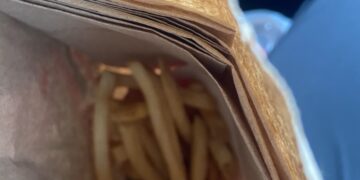As rising inflation continues to strain our wallets, a new study by the University of Northern Florida has targeted a neglected research area: What are some of the positives of completely running out of money?
As the new study proves, it turns out that when we cannot afford to eat, consumers become much less wasteful. The study, led by Dr. Leo Verhungern, found that the average American household’s food waste has dropped from 214 pounds a month to just 130 from January 2020 to February 2023.
When asked about whether he was celebrating the good news concerning food waste, Dr. Verhungern said, “I guess? Can you elaborate?”
Compared to countries where global warming is taken seriously, like Angola and Yemen, Americans are incredibly wasteful. In a country currently sending 70% its edible food directly into the garbage, it can be argued that giving out an extra $20, $30, or $50 at the checkout desk might just be the reality check most of us need to actually eat all of our groceries. I know that I often forget something at the back of the fridge each week, and a little reminder from my checkbook certainly couldn’t hurt!
But instead of celebrating a rare positive, local politicians have decided to focus on the most dour aspects of inflation.
“Life is just one long, hard kick in the urethra for many people,” Dover Mayor Joe Byron said during last week’s city council meeting.
Others seem more optimistic.
“People are certainly budgeting a lot more than beforehand,” Leila Leiden, the director of Dover Unincorporated Food Facilities, said. “Although I would certainly say that the overall impact of runaway food costs is definitely not favorable, as I think you seem to be implying.”














Discussion about this post